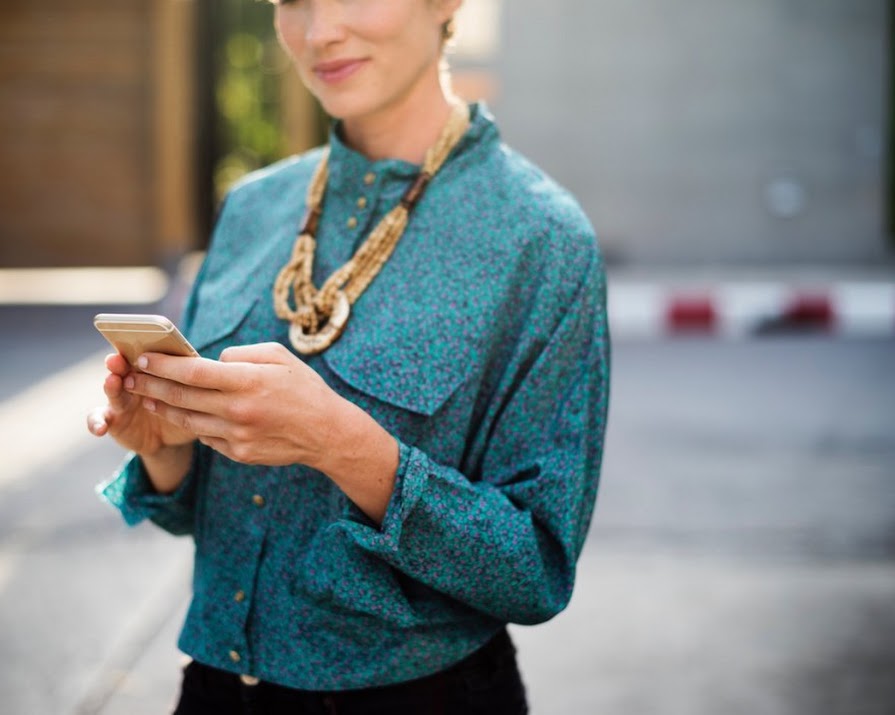
By IMAGE
14th Aug 2017
14th Aug 2017
Vicarious trauma is a growing part of our lives as we are bombarded with images and watch tragedy unfold across social media. Maia Dunphy reflects on the need to check out from time to time
The concept of escape means different things to different people. To some, it might evoke thoughts of a holiday, half an hour with a cup of tea and a book; to others a box set, a bath, a walk before work, being alone, being in company, or digging a tunnel out of prison with a soup spoon. Although that final, literal sense hopefully won’t apply to any of us. Ahem. Escape implies freedom, distraction, a temporary break from reality (and if you’re my age, a glamorous fragrance from the early 1990s that we’d douse ourselves in using the pharmacy testers on a Saturday afternoon, before being scolded by the fatigued security guard). It’s probably the most common word found on travel brochure covers, typically emblazoned under photos of white, sandy beaches. It’s always a white, sandy beach, and even though I’m one of those people who can’t sit on a beach for more than an hour without becoming bored to within an inch of my life, and squinting at people’s backsides until they look like different fruits (try it), I, like everyone else, stop and sigh longingly at the images.
The truth for most of us is that escapism, unfortunately, doesn’t tend to come from those blissful (but boring) sandy beaches, but from the far more mundane. From daydreaming, mindfulness, a gossip with a friend, a glass of wine at 6pm or watching an episode of that show you missed when everyone else has gone to bed. The relatively new problem with escapism is that it’s becoming increasingly difficult to achieve. Most of us never switch off – the internet means we take our work home, or feel like crap because someone else is having a better time on Facebook (NB: we do know at this stage that they’re really not, right?).
“There is often no escape in a world of modern technology, unless we make the decision to occasionally switch off and not live our lives on–a sort of permanent standby.”
We check our text messages and emails just before falling asleep, and are bombarded with constant bad news from all sides. The news is everywhere, 24/7, like an all-you-can-eat buffet of food no one likes. Photos of children in war zones on our Twitter feeds, terrorist attacks, Paris, London, Manchester – we are more exposed to the worst of humanity than ever before, and it’s becoming increasingly difficult to switch off. This may sound a little dramatic; how dare we be affected by reading or watching images of an atrocity when there are real people living through it? But a sort of vicarious trauma is a very real thing, so much so that psychologists now recognise it as a condition, and parents are warned of the dangers of exposing their children to too much bad news. Does that make us soft? Are we the weak, snowflake generation some claim us to be? Nope. Any compassionate human being is entitled to feel pain at helplessness and hopelessness. I watched a video of a little Syrian boy – I won’t go into the details here – that appeared in my Twitter feed some months ago.
I cried and cried, and thought of him at 4am when I couldn’t sleep; I still do. I was in a dark mood for weeks and wished I could have unseen it. I gave a donation to a relevant charity, but there wasn’t much else I could do, which made me feel even worse as I went about my lucky life. When I eventually told a friend, she didn’t laugh at me, but was relieved that someone else was feeling the same. It turns out many of us get overwhelmed by the constant onslaught of bad news. We might think that bad news which doesn’t directly affect us should make us happier and more thankful for our own blessings, but actually, it’s the opposite.
Negativity breeds more of the same, and many people who are overexposed to disturbing or upsetting imagery often start to become anxious and pessimistic about their own lives as a direct result. Or worse, develop compassion fatigue as they start to believe that this is just the way things are.
This is all getting terribly serious for a piece ostensibly about escapism, but my point is this: life is relative and sometimes we have to be our own gatekeepers if we want to stay sane. There is often no escape in a world of modern technology, unless we make the decision to occasionally switch off and not live our lives?on?a sort of permanent standby. It’s not sticking your head in the sand to go to bed with a book rather than Twitter, or to watch a sitcom rather than another hour of the news. It’s not avoiding reality, but rather embracing your own. Self-care is in itself escapism; as is laughing, eating, socialising and just being.
So once in a while, we need to escape back into our own lives – turn off the news or switch it over to something funny; lock our kids? phones away for the night (and throw ours in too), meet friends and agree to only discuss positive things (really juicy gossip aside). Remind ourselves that good things are happening in the world too, but they won’t be on the front page because bad news sells so much better. We all have the ability to escape without the need for a white, sandy beach or internet access – grab those metaphorical soup spoons and start digging.























